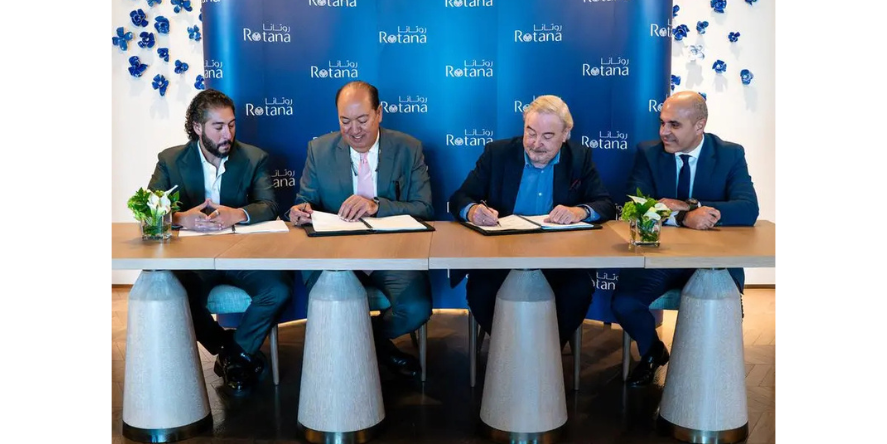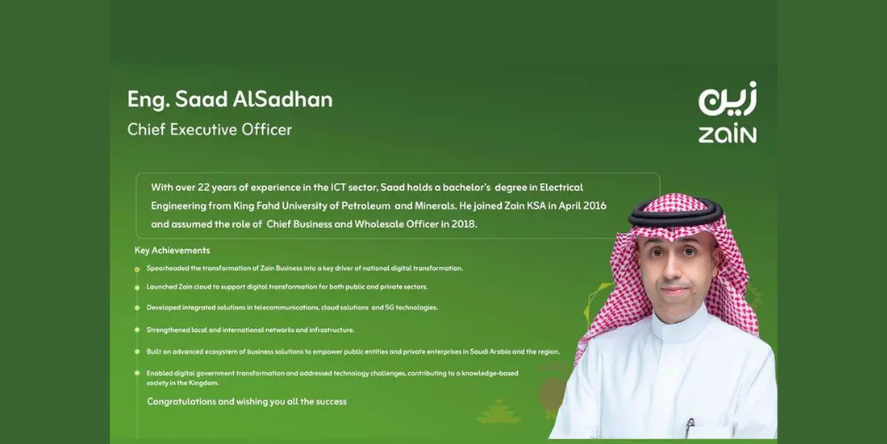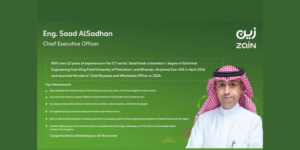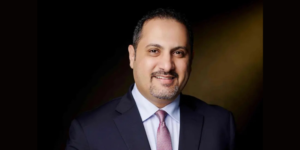The Egyptian Drug Authority (EDA) and Roche, have signed a Memorandum of Understanding (MOU) to shape the regulatory environment and undergo digital transformation. This represents a significant step towards enhancing healthcare in Egypt and achieving digital transformation within the framework of the country’s vision, Egypt 2030.
The signing ceremony was attended by Dr. Ayman El Khateeb, Deputy chairman of the Egyptian Drug Authority, Dr. Asmaa Fouad Ismail, Head of BIOINN Central Administration, and Dr. Mohamed Swilam,, General Manager of Roche Pharmaceuticals in Egypt.
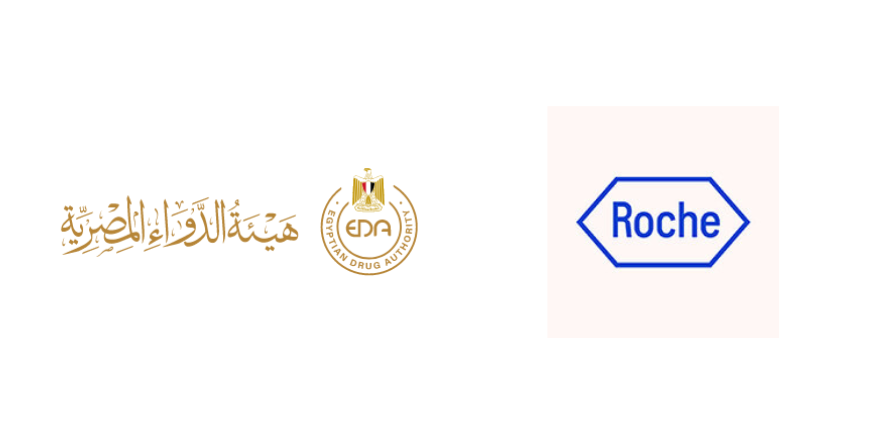
This collaboration between the authority and Roche encompasses two major projects. The first involves shaping and enhancing the regulatory environment by supporting Egypt’s commitment to joining the International Council of Harmonisation (ICH). This support will continue through workshops, professional development programs, and tours with other regulatory bodies, ensuring uniform regulatory practices globally. The membership will contribute to the capacity building of the Egyptian Drug Authority’s teams, keeping them informed, engaged in international cooperation, and ready to take bold steps. This development is expected to significantly change the regulatory environment in Egypt, allowing the authority to respond more quickly to global healthcare developments and actively contribute to shaping its future.
The second project focuses on promoting the digital transformation journey for the healthcare sector. Roche will play a vital role in supporting the Authority in its digital transformation journey by implementing the digitization of protocol and clinical studies management at the Central Administration for Biopharmaceuticals, Innovations, and Clinical Studies. Additionally, it will enhance the process of conducting and reviewing clinical studies.
Dr. Ayman Al-Khatib, Deputy Chairman of the Authority, expressed appreciated this partnership, and commented on it stating that: “We are pleased with this fruitful and ongoing collaboration between the Egyptian Drug Authority and Roche. The signing of this agreement is part of the efforts of the Egyptian Drug Authority and its partners within the industry to maximize the benefits of the Authority’s membership in the International Council of Harmonization as the first African country. This aims at enhancing the regulatory environment, as well as work towards the automation of regulatory and oversight services, and support the collaboration between the government and the business sectors. This contributes to building an effective and knowledgeable workforce constantly abreast of the latest global regulatory standards, capable of achieving institutional development and excellence, and working towards achieving the goals of sustainable development outlined in Egypt’s Vision 2030. The Authority helps respond quickly and effectively to global developments in its regulatory role, making it an integral part of the decision-making environment.”

Dr. Mohamed Swilam, General Manager of Roche Pharmaceutical in Egypt said, “We are proud of the strong and long-term partnership we have built with the authority through these pioneering initiatives. We believe our joint efforts will be pivotal in achieving the digital transformation goals set in the 2030 vision. These efforts will not only benefit patients in Egypt but will also generally enhance the healthcare system in the country”. He added: “We look forward to a bright future of fruitful and sustainable collaboration, continuing to support the development of healthcare in Egypt and enhancing the effectiveness of regulatory processes. Through this partnership, we aim to achieve real and sustainable progress in the healthcare sector, improving the quality of life for patients and the community alike.”
The collaboration between the authority and Roche dates back for a long period, including several transformative achievements for the Egyptian Drug Authority. For example, the development of an advanced drug approval system that has significantly accelerated regulatory processes, resulting in the registration of various important drugs within just three months, compared to an average of one year. Currently, Egypt has over 1000 patients being treated with these drugs within the first five months.





